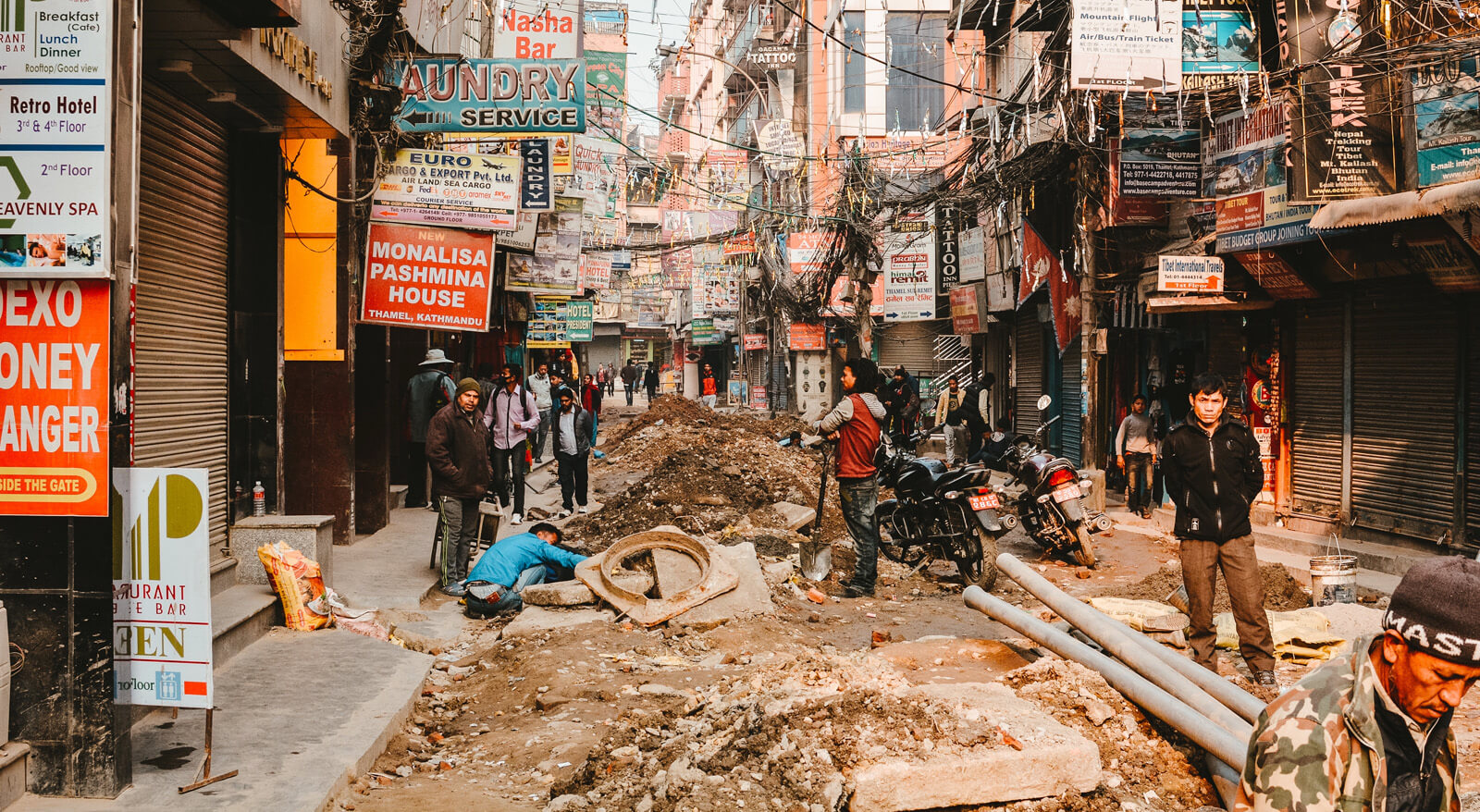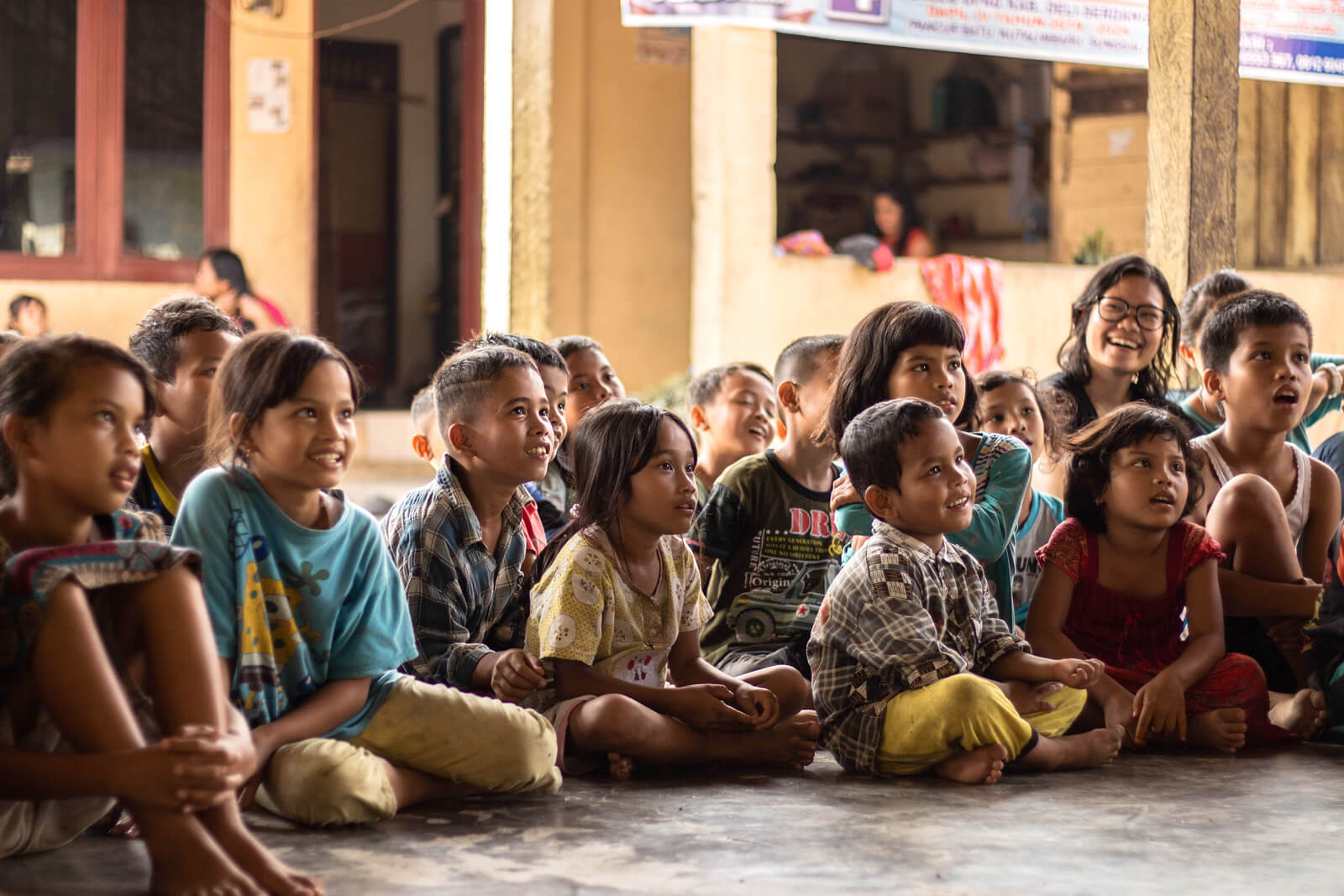The path to finding the right volunteer vacation can be a thorny one. Without research, what feels like a moral calling can quickly end up an ethical dilemma. With critics pointing to its colonial roots, the act of volunteering abroad can get problematic quickly.
Still, many travellers see their volunteer work as an act of humanity and sustainability, especially in the midst of overtourism. Doing good for others may also be good for you, and there’s a right way to do it.
Here are some win-win ideas for helping communities abroad:

Consider Natural Disaster Relief
We’re all the heroes of our own story. No volunteer begins a trip wanting to poach a job from a skilled local worker, but it does happen.
What seems like a slick and reputable touring package can be far more clandestine — there’s lot of money to be made from your free labour and program fees. By not paying local labourers, that same organization can pocket significant operational costs. It’s an underhanded practice that degrades quality of life for everyone in the community:
“… the last thing a Guatemalan highland village needs is imported unskilled labour. People are desperate for jobs…. Besides, long-term change happens when people can solve their own problems, rather than having things done for them.” — The Guardian.
One solution is to go where you know you’re needed, such as in the aftermath of a disaster. All Hands and Hearts (AHAH), a ‘smart response’ organization, operates volunteer opportunities for those who want to donate their free time to support communities across the globe, including those recently devastated by Australia’s bushfires.
AHAH offers a variety of volunteer options, including ongoing rebuilding efforts in and around Kathmandu, Nepal. Following back-to-back earthquakes that devastated the region in 2015, the area is still being pieced back together 5 years later.

Build Communities, Not Orphanages
Humans are hardwired for empathy and altruism. The problem is, there are those out there who exploit these better aspects of our humanity.
Cloying attempts made by organizations trying to garner our sympathies can be engineered to elicit donations or volunteered time — all as moneymaking schemes. Orphanages, unfortunately, are no exception. Most children in orphanages are not in fact orphans, and some organizations have even been linked to child trafficking.
“Instead, they have been separated from their families to attract fee-paying volunteers. In Nepal for example, it’s estimated that 85 per cent of all children in orphanages have at least one living parent… You may also be violating several laws by volunteering in orphanages. In many countries, volunteering requires special visa and work permits.” — UNICEF
An orphaned child is often far better off growing up inside a home with relatives or another family unit. That’s not to say that decent children’s homes don’t exist (some are started out of necessity during times of crisis), but they should require workers to have appropriate training for working with children, as well as work visas. All in all, be wary of orphanages, and refocus your efforts on community building instead.
And the most effective way to help children, families and communities is to empower women. Programs like WAGEGO, a grassroots foundation on the island of Mfangano, Kenya, work with volunteers and the community to support widows, and send children to school. An extremely high percentage of Mfangano’s population is HIV/AIDS-positive, which places a heavy burden on the island’s families. With help from the community and volunteers, WAGEGO supports itself through shared farming, jewelry making and fundraising. Depending on their experience, volunteers can help with campaigning and fundraising, education, counselling or farming.
For other alternatives, consider supporting these organizations, where the primary mission is to keep families together.

Focus on What Sets You Apart
Rigorous, locally-led volunteer packages are an excellent way to make sure your volunteer role isn’t one that could be filled by a local. Also, any offering you find that requires you to fill out an application is far more likely to be legitimate, as well as mutually beneficial for you and the community.
Start by reviewing your travel bucket list. Then, peruse an aggregator like GivingWay for nearby ethical volunteer opportunities. GivingWay aggregates a vast array of volunteer programs that are lightly pre-screened for you. Each organization must be a legally registered nonprofit run by and for the local community at a grassroots level and cannot operate an orphanage or residential home.
For those answering the call of the wild, take a look at Fronteering. Their packages let you put your biology skills to use by helping with native animal rescue, like a trip to South Africa to aid large cat conservation. Or, you could consider collaborating with locals to help categorize Amazonian species. For other options related to biodiversity, check out Sadhana in India, or the Biodiversity Research Institute in Brazil.
When choosing a program, be sure to consider your interests, work history, education and hobbies to see if any of your strengths align with what is required in the location you are visiting.

Remember, you don’t have to volunteer to travel responsibly. Depending on your situation, your time might also be well spent supporting unique destinations with tourist dollars. Whatever you choose, life in another culture can come with challenges, so here are some tips on how you can handle language barriers. And before you join any relief mission, you’ll want to know how any emergency travel advisories affect your insurance.
If you’re feeling a bit awash in the sea of options, take a moment and read TuGo’s 7 Things I Wish I’d Known Before Volunteering Abroad!
Happy trails to you,
Theras
What volunteer experience did you have that more people need to know about? Let us know in the comments below!
